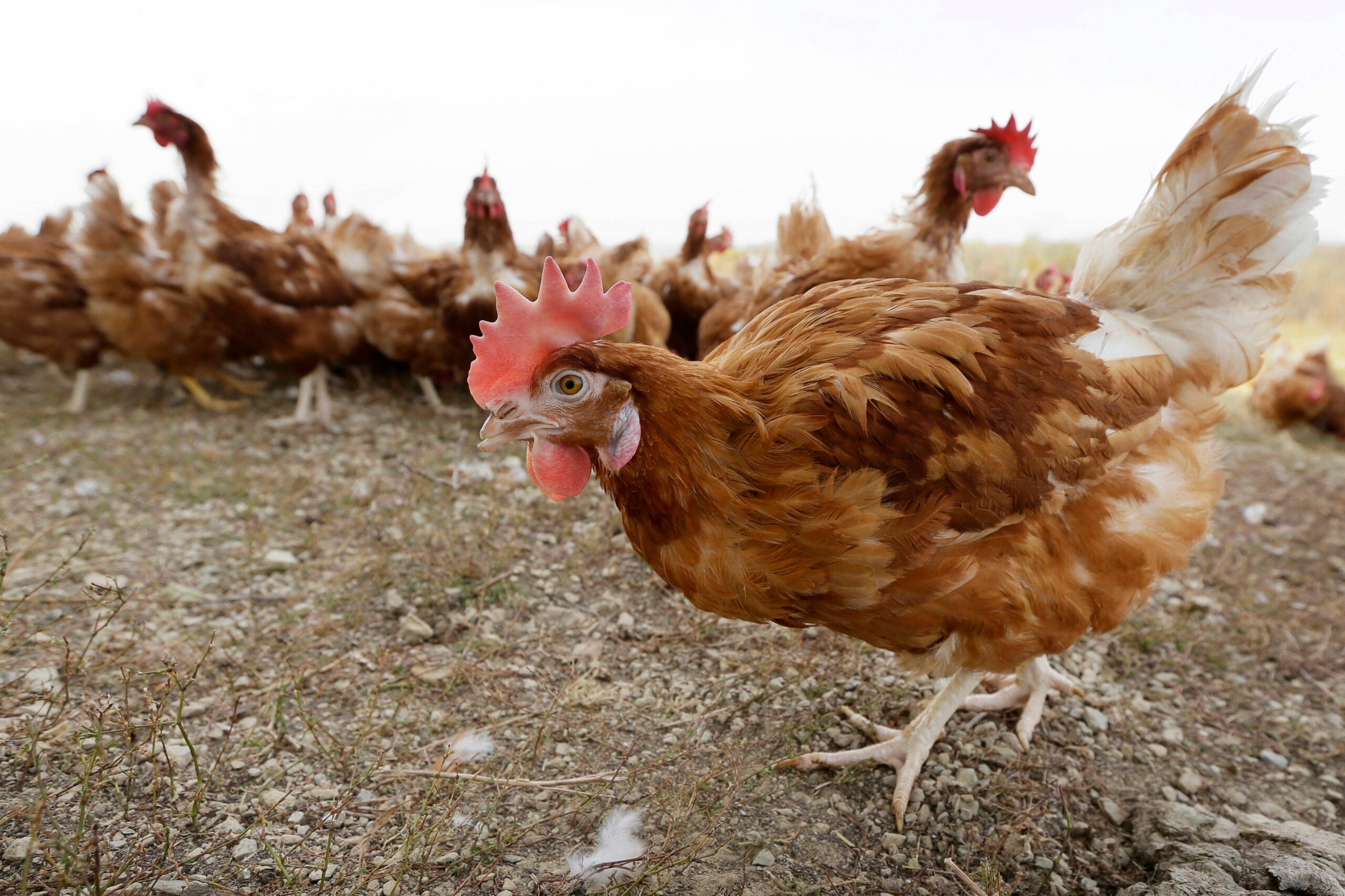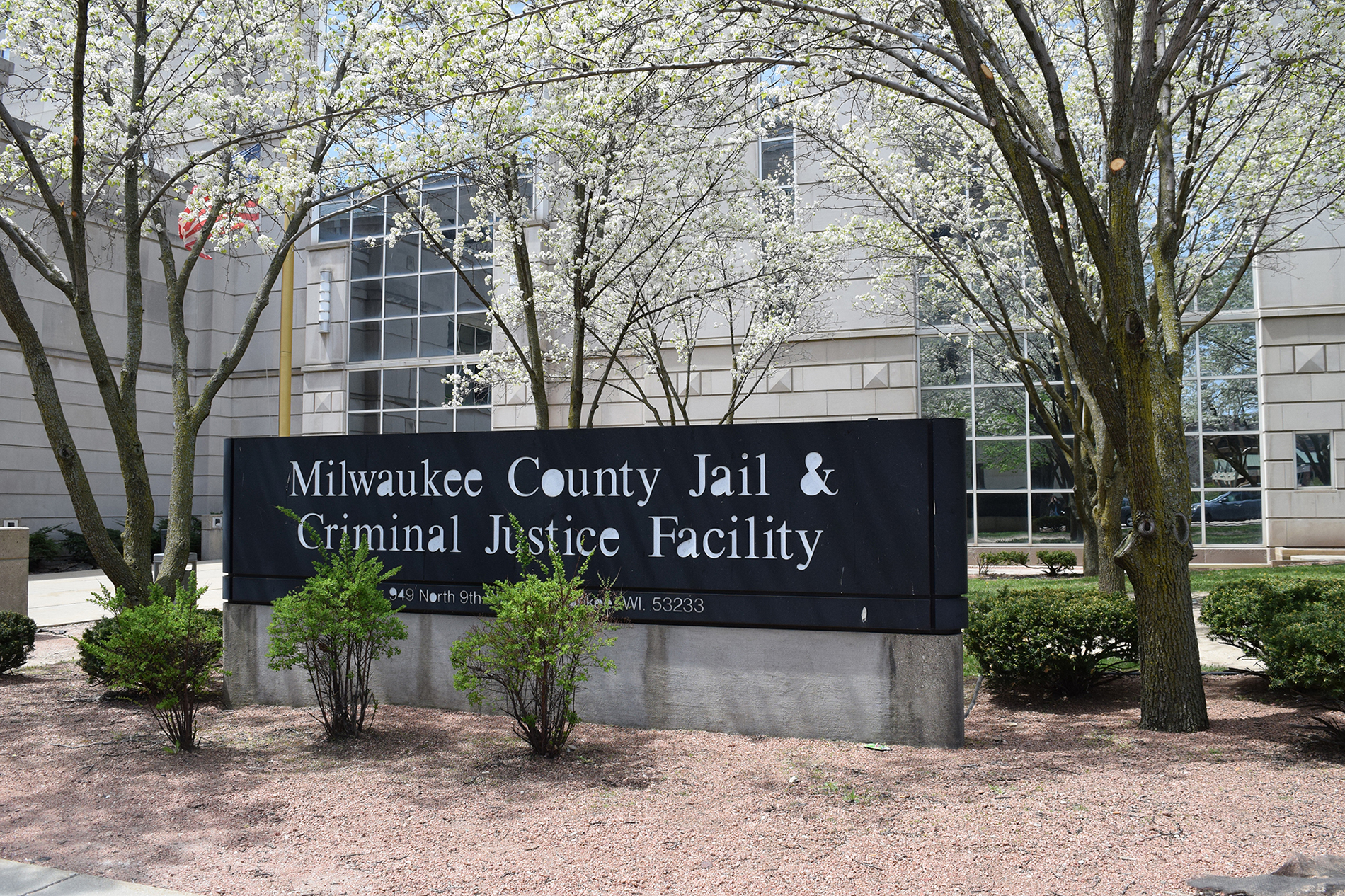Nearly half of the inmates in the Milwaukee County Jail have contracted COVID-19 as the highly contagious omicron variant sent new cases of the virus spiking to record levels in Wisconsin on Thursday.
Inspector Aaron Dobson, the jail’s commander, said Thursday that more than 400 of the jail’s roughly 900 inmates have tested positive for COVID-19.
“This variant is very persistent, and it is spreading much more quickly than the other prior variants so that we are experiencing challenges with that,” said Dobson. “The one good thing is that people don’t seem to get as sick from this variant. Most people are asymptomatic, which is very good.”
News with a little more humanity
WPR’s “Wisconsin Today” newsletter keeps you connected to the state you love without feeling overwhelmed. No paywall. No agenda. No corporate filter.
The jail is conducting PCR tests for staff and any individuals who display symptoms of the coronavirus. When inmates test positive in a housing unit, they’re moved into isolation and the entire unit is quarantined and tested five days later. Dobson said no one is allowed to move into or out of a unit until all inmates test negative or someone is released from custody.
The jail has been forced to find new areas to isolate and quarantine people as the surge has also strained staffing. As of Thursday morning, 34 of the jail’s roughly 165 employees tested positive for COVID-19 — the majority of which are corrections officers.
Dobson said some people in clerical positions have also tested positive, as well as staff from contracted vendors. The Milwaukee County Sheriff’s Office said Wednesday it currently had 62 employees who have gotten the virus.
The jail is following guidelines from the Centers for Disease Control and Prevention that allow employees to return to work after five days of isolation if they’re asymptomatic. Jail staff are also utilizing KN95 respirators instead of cloth masks to help prevent transmission of the virus.
Ron Schroeder is an inmate in the Milwaukee County Jail, who is being held pending trial on a first-degree reckless homicide charge. He said the omicron variant has “infected every pod” in the jail. Schroeder said inmates haven’t been given an opportunity to sanitize their rooms, saying they’ve been confined to their cells for 23 hours each day since Christmas Day.
“It really is maddening,” said Schroeder. “To be locked up in a small cell 23 hours a day is horrible.”
Dobson said it’s “true on occasion” that inmates are confined for that long, but he added staff are doing everything they can to meet statutory obligations. For the most part, the jail has enough employees to let inmates outside their cells for at least eight hours each day.
“We understand how important it is for them to get out of their cells, speak with their families, speak with their attorneys, and even do the basics like take a shower, cut their fingernails and go to see the barber,” said Dobson. “So, we are doing that as best we can even though we are experiencing the challenges we are.”
Other jails are experiencing similar issues, Dobson said, making it difficult to obtain help to meet staffing needs. He said they’re working with the Milwaukee County House of Correction to take more inmates from the jail since their current population is around 500, which is less than a third of its design capacity of nearly 1,700 inmates.
The Douglas County Jail in northern Wisconsin hasn’t seen a surge in COVID-19 cases due to the omicron variant. The jail had a COVID-19 outbreak in November during which 36 inmates tested positive, according to the jail’s administrator Tyler Edwards.
The jail has only had one of its roughly 150 inmates and one officer in training contract COVID-19 since then, but Edwards said they’re currently down nine officers due to a nationwide labor shortage spurred on by the pandemic. He worries about increased staffing constraints if they were to face another outbreak with the omicron variant.
“This last time, we were able to contain that to just one unit,” said Edwards. “With omicron, we worry that it could spread to other units. We could potentially be looking at multiple areas of the jail that we’re dealing with it.”
If an inmate required hospitalization, Edwards said that would also place strain on staffing as an officer would be required to remain with them. An outbreak of the more contagious omicron variant could force them to seek additional staffing from other jails, the Douglas County Sheriff’s Office or the National Guard depending on the severity.
The jail is supplying inmates with a new cloth mask each day, and individuals are required to wear them in common areas and during transport. Inmates receive temperature screenings and are quarantined for a week upon arrival. A negative test is required before they’re moved into the jail’s other housing units.
Edwards said they’ve been trying to prevent the spread of the virus as much as possible among inmates and staff.
“Even with masks on, sometimes things can happen,” he said.
COVID-19 cases on the rise, but ‘no increase in serious illness’
In state prisons, positive COVID-19 cases in December were 10 times higher than November, according to data from the Wisconsin Department of Corrections.
The agency’s COVID-19 dashboard shows 64 cases of the virus were recorded in November. In December, 699 cases were reported.
“While positive test results have increased, we have seen no increase in serious illness. None,” said John Beard, DOC spokesperson in an email. “We attribute at least some of that to the extremely high vaccination rate among persons in our care (around 82 percent) and the increasing number receiving booster doses. Also, evidence suggesting this variant may lead to less-severe illness.”
As of Tuesday, more than 16,000 adults and youth held within state correctional facilities — or 81.6 percent — have been fully vaccinated against the virus. Nearly 7,000 inmates have received booster shots of the vaccine.
The DOC reported 466 active COVID-19 cases as of Thursday. Beard said more people have been quarantined and their movement has been limited as positive cases of the virus have grown. Facilities may temporarily modify movement for all prisoners until test results are available.
More than 12,000 tests of people housed within state facilities have come back positive for the virus since the beginning of the pandemic.
The Department of Corrections continues to test people who have either been exposed or show symptoms of the virus with no reported shortage of testing supplies. The agency reported 365 active COVID-19 cases among staff on Thursday and 3,932 cases of the virus among workers since the onset of the pandemic.
“Just like in communities across the state, we have seen an increase in infections among our staff across the state,” said Beard. “It has added to staffing concerns, but we are managing.”
Nearly 20 percent or roughly 2,000 full-time jobs remain unfilled at the Department of Corrections. Officials are emphasizing the use of masks and enhanced cleaning as cases of the virus have surged statewide.
At least 33 people housed within state prisons have died from COVID-19.
Wisconsin Public Radio, © Copyright 2026, Board of Regents of the University of Wisconsin System and Wisconsin Educational Communications Board.





